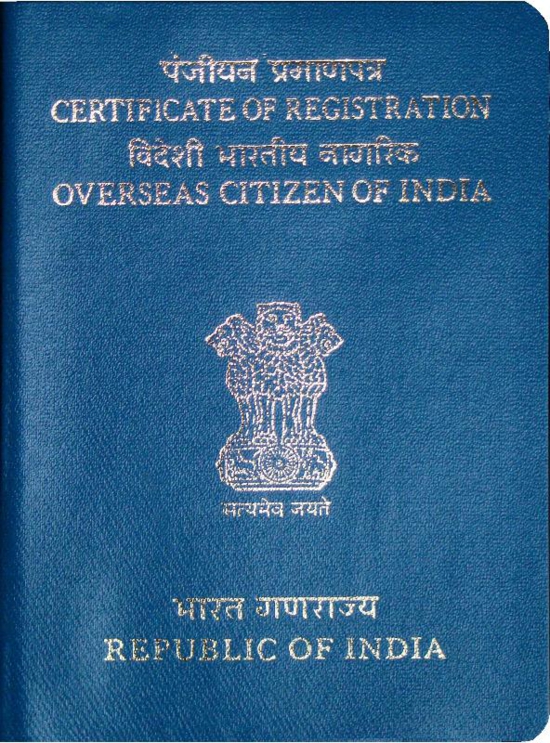As my office is just five minutes’ walk from the Indian High Commission, I have received a lot of clients who are in the process of applying for Overseas Citizenship of India (OCI) on a weekly basis. Some of them have already prepared an affidavit themselves and what they want me to do is to notarise their signature on that piece of document.
Some of them are not able to draft that piece of document, so I am obliged to prepare it on their behalf.
Why are Indian citizens required to swear an affidavit before a notary public practising in England and Wales when they apply for Indian citizenship?
It sounds strange.
The reason is that before 2005, the Indian government did not allow Indian citizens to hold a British passport (or any other foreign passport for that matter). It meant that once an ethnic Indian became a British citizen, they were required to surrender their Indian passport to the Indian High Commission at the Strand.
However, the Indian government launched the Overseas Citizenship of India Scheme in 2005, and through this scheme, Indians living overseas can be granted a sort of Indian citizenship even if they have already acquired citizenship of a foreign country. In this way, dual citizenship is made possible.
Why do British citizens of Indian origin bother to apply for Overseas Citizenship of India (OCI)?
Of course there are a number of benefits to enjoy. The main benefit is that holders of OCI card do not have to go through the tedious process of visa application every time they intend to enter the country either for business or for family visits. The OCI card is kind of like a visa for life.
You pay a one-off application fee and then for the rest of your life, you are not required to pay visa fees any more.
In this way, the benefits outweigh the costs and the scheme has become very popular.
But what is the catch?
Although there is no catch as such, the OCI application is not a straightforward process.
For example, if you claim that you are an ethnic Indian, you will need to prove this. It’s fine if you can produce your birth certificate or passport. But if you don’t have access to your birth certificate for whatever reason, or have an expired Indian passport, and no other documentary evidence showing that you have already surrendered your Indian passports to the Home Office or Indian High Commission in London, you are left in an awkward situation
The reasons for the lack of evidence are various but very often they can be summarised as below:
- The applicant was born outside India (such as Kenya or Uganda) and for this reason was not issued any Indian birth certificate
- The applicant entered the UK on the passport of his father or mother when he was a minor so he never possessed any Indian passport.
- The applicant surrendered his Indian passport to the British or Indian authorities when he was granted British citizenship but no receipt was issued at that time.
To remedy the above situation, the Indian High Commission requires the applicant to swear an affidavit before a notary public stating the reasons for their failure to produce any documentary evidence in relation to his ethnic origins. Very often the applicant has to attach exhibits, such as the birth certificate of his parents, to substantiate his claims.
So what is an affidavit and what does it look like?
Simply speaking, an affidavit is a sworn written statement used in evidence.
I would like to show all interested readers a template of such affidavit as follows:
Affidavit
With Regards to my OCI Application (Application number: _____________ ).
I, ____________ presently residing at __________________ do solemnly and sincerely declare that my last Indian Passport was not returned to me by the British Home Office after I became British Citizen. OR
I, ____________ presently residing at __________________ do solemnly and sincerely declare that I travelled to England on my mother’s passport and have never had any Indian Passport. Other than my British nationality, I do not hold any other nationality.
I made the above statement believing it to be true.
Sworn by the said ____________________
at 71-75 Shelton Street, London WC2H 9JQ, this ________
in the year Two Thousand and Twelve
Before me
Stephen Yiu
Notary Public
London – England
I Stephen Yiu, certify that ______________,identified to me signed this affidavit in my presence at 71-75 Shelton Street, London WC2H 9JQ on _________.
When signing the affidavit, the affiant (the applicant), if he is a Christian, has to read the following statement before the notary public:
I (full name),swear by Almighty God, that this is my name and handwriting and that the contents of my affidavit are true.
If the affiant is not a Christian, he can affirm instead, and the statement is bit different:
I (full name),do solemnly, sincerely and truly declare and affirm that this is my name and handwriting and that the contents of my affidavit are true.
The whole process is then over. The applicant can now submit the notarised affidavit to the Indian High Commission for application purpose.
So, there you have it- information on how to make your OCI application and a summary of the process involved.
Stephen Yiu is a London notary public. Apart from OCI applications, he also provides Corporate and multi-lingual notary services.

